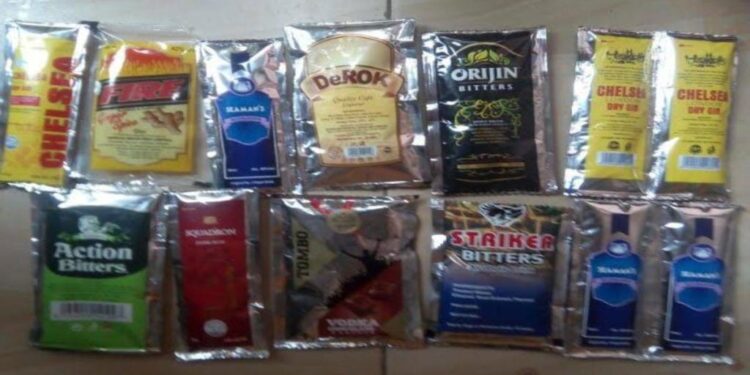
The Food, Beverage, and Tobacco Senior Staff Association has warned that Nigeria stands to lose over N2 trillion in investments if the planned ban on sachet alcoholic drinks and alcoholic beverages in PET or glass bottles below 200ml is enforced by December 31.
The union cautioned that the move could have severe economic and social consequences across the sector.
Speaking at a press conference in Lagos on Friday, FOBTOB President Jimoh Oyibo emphasised the potential fallout, stating that reversing the ban could help preserve approximately 5.5 million jobs, including both direct and indirect employment, and avert widespread disruption in the industry.
“Repealing the order would avert the grave repercussions that would most definitely follow the ban, especially by saving approximately 5.5 million jobs, both direct and indirect,” Oyibo said.
He called on the Senate to conduct a public hearing before enforcing the ban, ensuring all stakeholders have the opportunity to present their views.
“For a fair hearing and to demonstrate good faith, the Senate should invite relevant stakeholders to a Public Hearing to ‘hear the other side’ and be adequately informed to make an informed decision,” he added.
Oyibo cited a similar ban imposed by NAFDAC last year, which was suspended after labour protests and a public hearing organised by the House of Representatives. That process led to a directive for NAFDAC to engage manufacturers and review its approach.
Subsequently, the Ministry of Health granted a one-year extension for the development of a comprehensive National Alcohol Policy, which was validated in October 2025 with NAFDAC’s active involvement.
The union leader urged lawmakers to review and endorse the validated policy, describing it as a multi-sectoral framework developed after last year’s public hearing.
He emphasised the need to consider the entire alcoholic beverage value chain, including formal and informal workers and local manufacturers, before any enforcement action.
Highlighting the economic stakes, Oyibo warned that nearly N2 trillion invested in machinery and raw materials could be lost, while over 500,000 direct workers and an estimated five million indirect workers, including suppliers, distributors, marketers, and logistics operators, could lose their livelihoods.
“Indigenous Nigerian manufacturers risk total collapse, discouraging future investments. Smuggling and the circulation of unregulated alcoholic products may skyrocket, worsening public health dangers.
Government tax revenue could decline sharply as factories shut down or scale back operations. With rising unemployment and no safety nets, this ban will plunge families into poverty. The very children the policy claims to protect may be forced out of school if their parents lose their jobs,” Oyibo warned.

